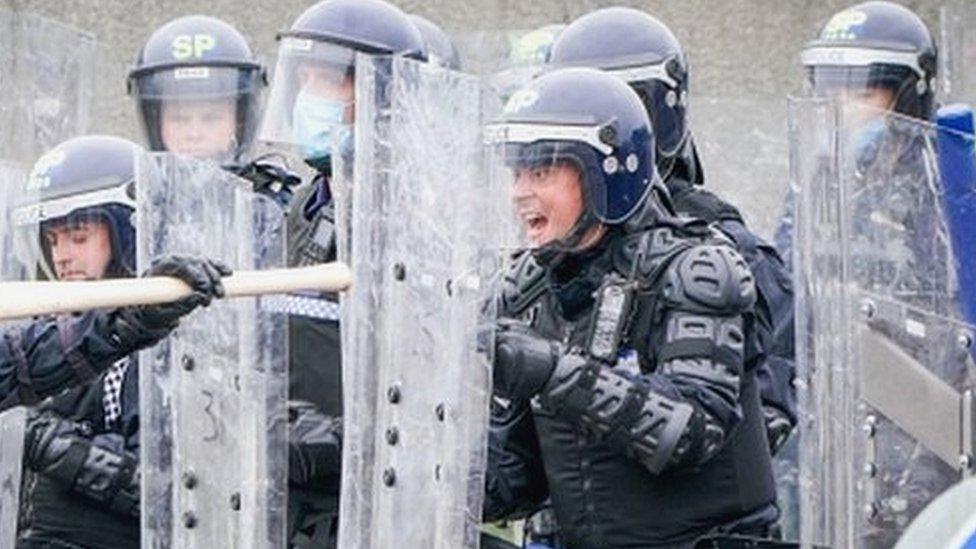Nicola Sturgeon urges COP26 protesters to respect Glasgow
- Published
COP26: "Show consideration' during climate protests"
First Minister Nicola Sturgeon has urged protesters to respect Glasgow and the emergency services as the city prepares to host the COP26 summit.
She was speaking less than 48 hours before the UN climate conference gets under way.
Ms Sturgeon was joined at a media briefing by Police Scotland Chief Constable Iain Livingstone.
She also addressed concerns about an inevitable spike in Covid cases and travel disruption.
Earlier this week, protesters from Extinction Rebellion said they were planning high impact "deliberate disruption" during the summit.
But the first minister urged activists not to cross the line.
She said: "I would ask that people demonstrating show consideration for the city and people who live here.
"The people of Glasgow are opening their city up to the world at what is a difficult time for everybody around the world.
"I hope those who are travelling into the city, welcome though they are, recognise that."
Ms Sturgeon also said the emergency services were there to keep everyone safe including those involved in the negotiations, those protesting and local residents.
The first minister said Glasgow has hosted major events before but the size, scale and significance of the summit was unprecedented.
She added: "It could quite literally determine the future of the planet."
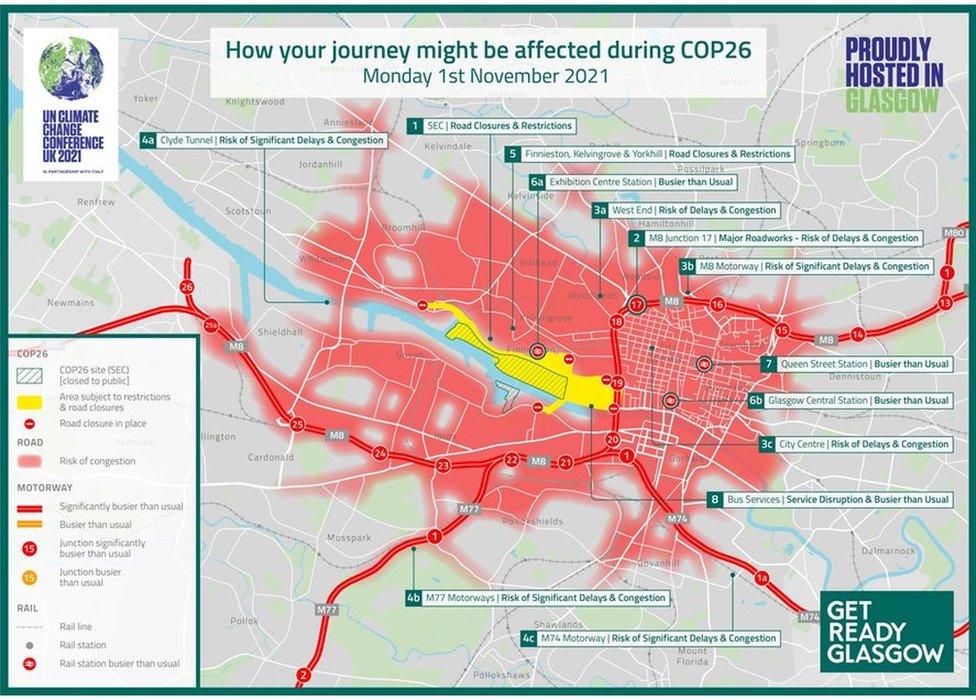
Major road closures are in place around the Scottish Event Campus (SEC) and the first minister urged the public to avoid unnecessary journeys during the first few days of the conference, which starts on Sunday and finishes on 12 November.
The event is expected to attract 25,000 delegates and more than 120 politicians and heads of state, including US President Joe Biden, will take part in the world leaders' summit from 1-2 November.
Ms Sturgeon said Scotland and Glasgow had a "proud tradition" of peaceful protest and added: "We want peoples' voices to be heard."
But she also issued an appeal to those planning disruption and urged them to respect the police and other first responders
She added: "Our emergency services are there to keep everyone safe."
The first minister asked people to follow Covid rules amid fears the event would lead to an increase in cases.
Safety measures, such as daily testing and face masks, will be in place at the host venues.
But experts believe the greatest virus risk will come from protests or other activist events, which could attract an estimated 100,000 people.
'Significant gap'
At present, Scotland and Northern Ireland have the lowest rates of Covid infections in the UK, according to the Office for National Statistics.
The Scotland figure now stands at 1 in 75 compared with 1 in 90 the week before.
Ms Sturgeon said the next fortnight would bring disruption and cause frustration to the people who lived in Glasgow but said it was for a purpose.
She added: "This is probably the most important global gathering of this century so far.
"It is not just in Glasgow's interest to have a safe and successful summit, that is in the interest of the entire world."
The first minister also said the success of the summit cannot be taken for granted as there is still a "significant gap" between ambitions to keep the rise in global temperatures below 1.5 degrees and the current commitments from world leaders.
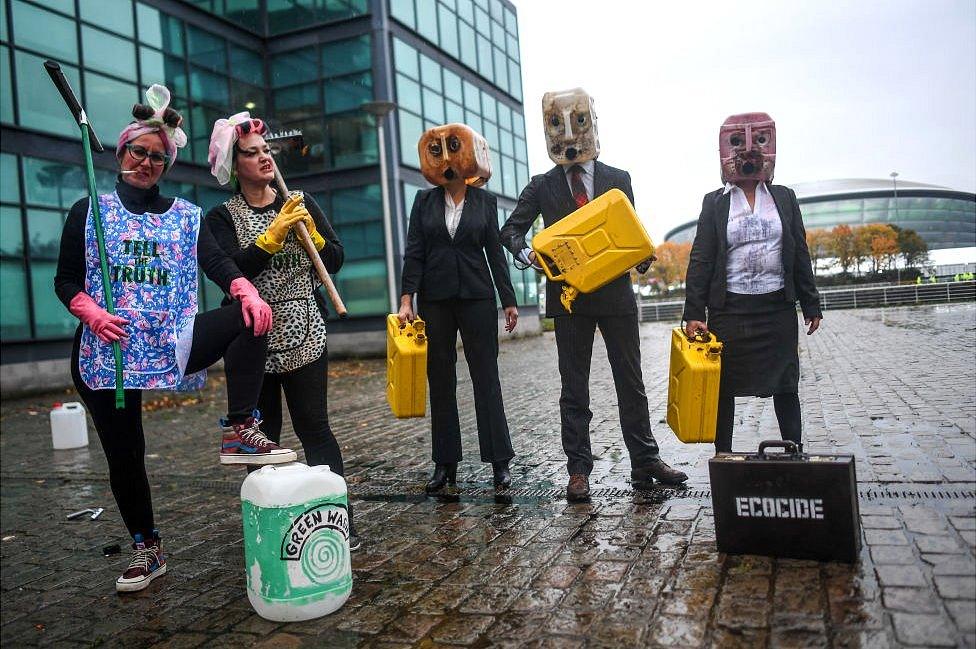
Ocean Rebellion demonstrated against fossil fuel pollution opposite the Hydro in Glasgow on Friday
She said: "If that gap can't all be closed in Glasgow, then at the very least we need to come out of Glasgow with a clear process and timescale around the way in which it will be closed. In other words, keeping 1.5 alive.
"The next decade, between now and 2030, is critical if we want to keep 1.5 alive."
Chief Constable Iain Livingstone said his force was ready to deliver a "safe and secure COP26" while maintaining a quality police service for the people of Scotland.
Operation Urram (Gaelic for respect) will see up to 10,000 officers deployed on some days of the conference.
On Friday 7,000 officers and staff from across the UK arrived in Scotland to support the massive security operation.
Mr Livingstone stressed that under his command they would all "work to the values" of Police Scotland.
He also said his officers would protect the rights of people who wanted to peacefully make their voices heard.
But the chief constable added that he had a clear message for those intent on violent disorder and for those who planned to disrupt the conference.
"We will respond swiftly and we will respond robustly," he warned.
'Severe disruption'
Meanwhile, Transport Scotland is urging commuters to be braced for "severe disruption".
Nicola Blaney, head of events resilience, said: "Across the network, we know certain dates are due to be much busier than others, especially November 1, 2, 5 and 6.
"This weekend is also likely to be very heavily congested, and we need people to help us to avoid gridlock and crucially, leave space for key workers and emergency services to make essential journeys.
"We've been encouraging people to work from home as a way of reducing the risk of Covid - which would also help ease pressure on the transport network during the conference's peak."
The main closure is Glasgow's Clydeside Expressway, which will not reopen until 14 November, but full details of all the affected routes can be found on the Get Ready Glasgow, external website.
Friday 5 November and Saturday 6 November are also expected to be extremely busy, due to planned climate change-related marches from Kelvingrove Park into the city centre and Glasgow Green.

The COP26 global climate summit in Glasgow in November is seen as crucial if climate change is to be brought under control. Almost 200 countries are being asked for their plans to cut emissions, and it could lead to major changes to our everyday lives.

- Published29 October 2021
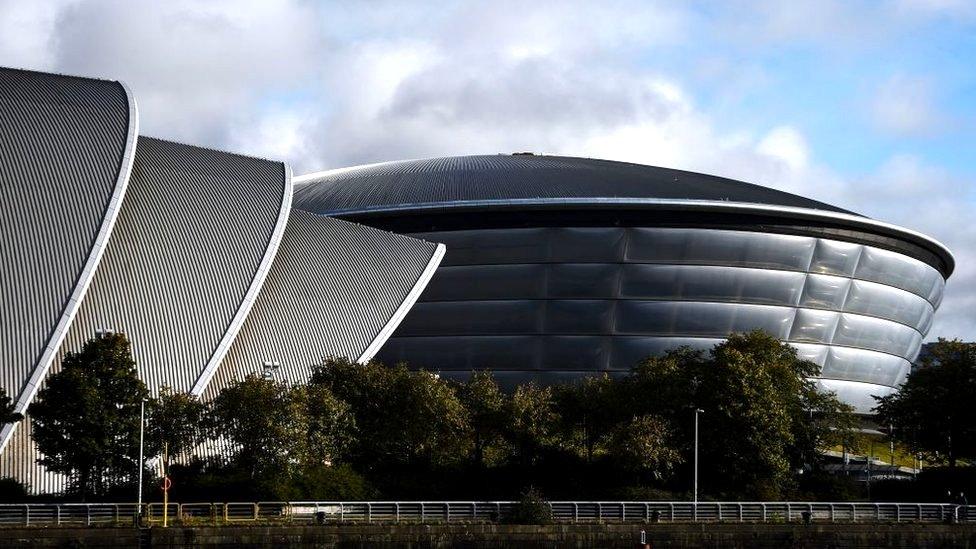
- Published28 October 2021
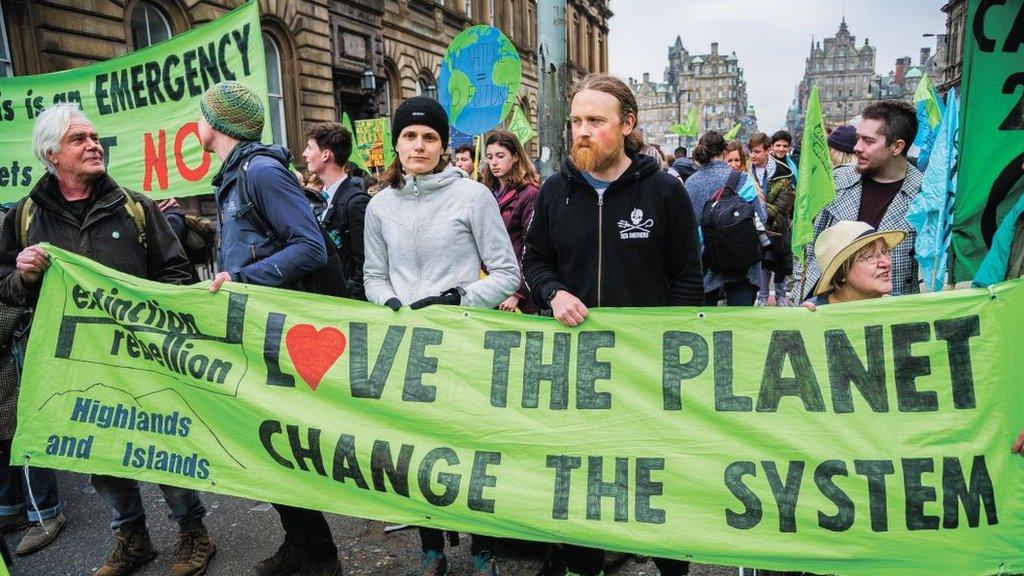
- Published27 October 2021
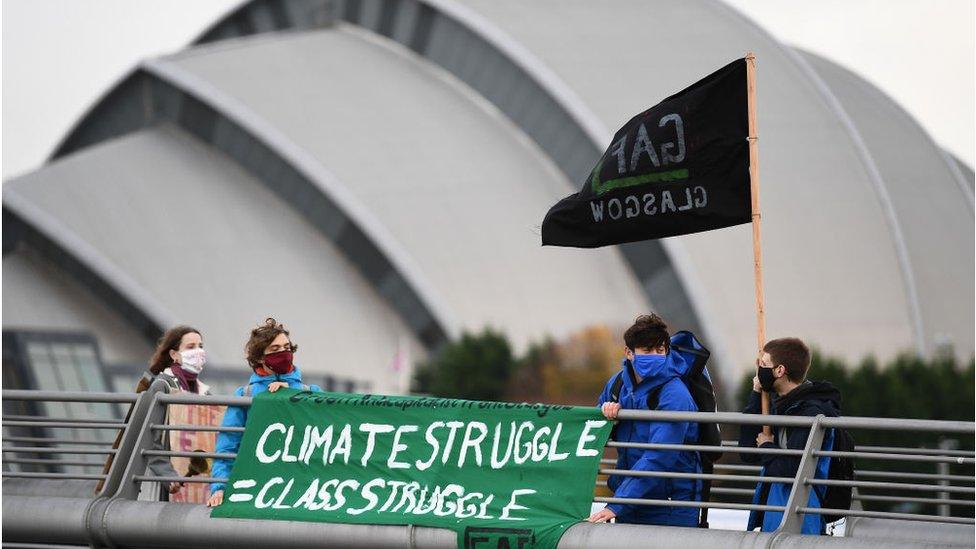
- Published13 September 2021
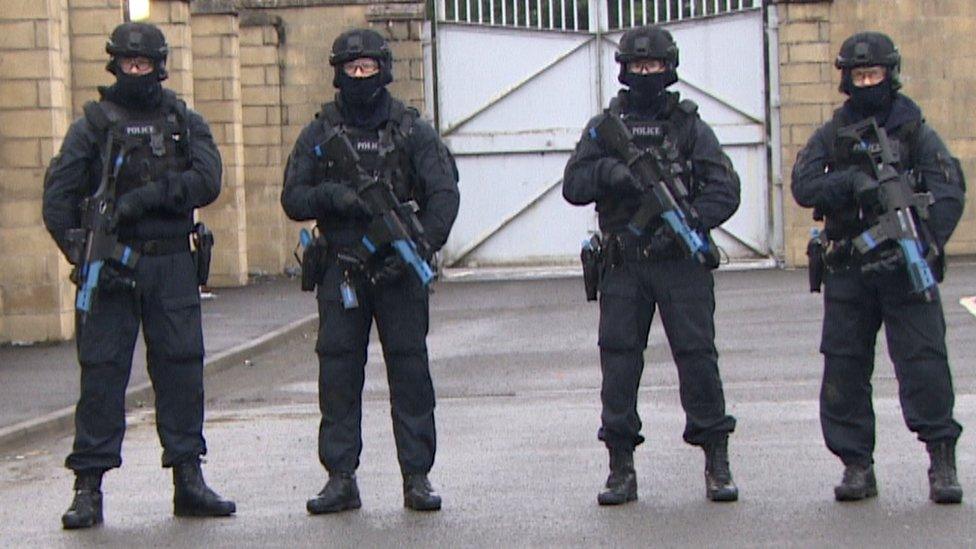
- Published31 August 2021
